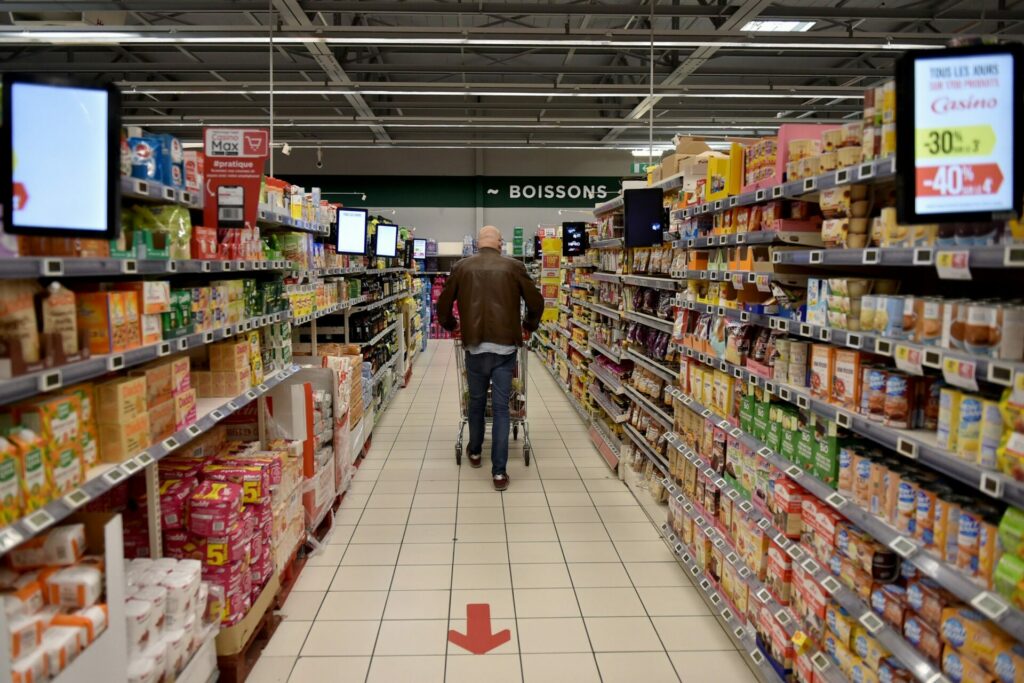The supply chain disruptions due to the two-plus year pandemic, the demand recovery after pandemic shocks, and the turmoil in the energy markets after Russia’s invasion of Ukraine war have increased the inflation to four decades record levels in USA and Europe, generating anger and frustration among consumers.
In March, inflation in the USA shot to a new peak reaching 8.5% since 1981, and in Belgium hit the highest level of 8.31% since 1983 and stayed at the same level in April. The possible shortages of the exports of other commodities from Russia and Ukraine may also have an impact on rising inflation in the following months.
Besides the aforementioned causes of price hikes, however, price gouging of dominant corporations for greedy profits is also deteriorating and accelerating inflation further. Corporate profits in the USA hit the highest level since 1950, while inflation rose to the four decades’ highest level.
The corporations claim that they are forced to increase prices because of increasing input costs, but their own statements refute that. The recent report of The White House National Economic Council reveals how corporations are taking advantage of market power to raise prices and grow profit margins: “Their profit margins — the amount of money they are making over and above their costs — have skyrocketed since the pandemic. Gross margins are up 50% and net margins are up over 300%.
If rising input costs were driving rising meat prices, those profit margins would be roughly flat, because higher prices would be offset by the higher costs. Instead, we’re seeing the dominant meat processors use their market power to extract bigger and bigger profit margins for themselves. Businesses that face meaningful competition can’t do that, because they would lose business to a competitor that did not hike its margins.”
In a recent survey, 56% of retail corporations state that inflation has given them the ability to raise prices beyond what’s required to offset higher costs. These corporations have huge market shares, and they have all the means to raise prices due to the lack of competition in their market. They are exploiting the current inflationary environment as a pretext to increase the prices more than necessary to boost their own profits.
A Guardian analysis of top corporations’ financials and earnings calls revealed the skyrocketed profits of the companies during the pandemic through passing inflationary costs, and sometimes more, on the customers in the form of price increases. The analysis indicated that net profits of those companies increased by a median of 49%.
Lack of competition
Lack of competition due to the increased market concentration has granted corporations to dominate markets via their “pricing power”. Market concentration has been increasing over 75% of US industries since the late 1990s leading to higher profit margins and causing weakened competition across the majority of industries. The concentration trend is the same in Europe. A study of the five largest European countries indicates an increasing average market concentration and aggregate profitability trend in the last two decades.
“Corporations are raising their prices even as they rake in record profits. How are they getting away with it? Because they face little or no competition. If markets were truly competitive, companies would keep prices down to prevent competitors from grabbing away customers,” says Robert Reich, former US secretary of labour.
American corporations were close to double their profits even during pandemic, increasing steeply from $1 trillion in 2019 to $1.7 trillion in 2021, thanks to the “pricing power” of large firms in dominant industries in which market concentrations are high.
Procter & Gamble (P&G), one of the largest consumer product companies in the world, declared more than $39 billion gross profit for the last year, a 9.27% annual increase. Not surprisingly P&G raised the prices on consumer goods in April 2022 blaming the rising cost of commodities and transportation.
Coca-Cola and PepsiCo dominate together three-fourths of the U.S. soft drink and beverage market. Those two corporations increased prices, despite their huge profits last year. PepsiCo and Coca-Cola reported almost 10% and 19% increase in their annual gross profit in 2021 respectively. Starbucks also increased prices denouncing increasing supply costs, while celebrating a 31% boost in profits at the end of 2021.
Meat prices hiked more than 20% more than they were in 2021 in the USA, where four major meat companies —Cargill, Tyson Foods, JBS, and National Beef Packing — control almost 85% of the market. The gross profits of these behemoths soared 120% over the course of the pandemic.
Due to the soaring meat prices, Tyson Foods reported that first-quarter in 2022 profits nearly doubled. When we look at the European markets, nothing is surprising; five companies – Tönnies, Westfleisch, Vion, the Müller Group, and the Danish Crown – control two-thirds of all processed pork in Germany.
Energy prices rose at a seasonally adjusted annual rate of 30% in 2021 in the USA, meanwhile, BP reported the highest profit in 8 years, Chevron reported a $6.3 billion profit (up from $1.37 billion in the same quarter in 2021) and Exxon reported a $5.5 billion profit for the first three months of the year and doubled the $2.7 billion profit it made in the same period last year.
Consumers suffer
Nobel laureate Economist Joseph Stiglitz drew attention to the outsized price increases made worse by anti-competitive corporate behavior in the oil industry: “As the world moves away from fossil fuels – as it must to mitigate climate change – some transitional costs are likely, because investment in fossil fuels may decline faster than alternative supplies increase. But what we are seeing today is a naked exercise of oil producers’ market power. Knowing that their days are numbered, oil companies are reaping whatever returns they still can.”
Through the impact of the media framing on public perception, the dominant corporations controlling the markets have been presented as the victims of the increased inflation. Yet, all those corporations have been enjoying skyrocketed profits thanks to the price hikes, while they could tolerate increased costs without passing them on to consumers through price increases.
The markets are dominated and controlled by a small number of behemoth corporations. The ability of the corporations to pass on inflationary costs to consumers shows us that only consumers are suffering from the financial burden of inflation while corporations are enjoying record profit levels by taking advantage of the unprecedented global economic circumstances. Therefore, governments should improve antitrust laws to ameliorate the market structures to be (more) competitive.
Biden directed the Federal Trade Commission to investigate price-gouging by oil and gas companies. Record corporation profits indicate this initiation should go further for other industries. It is time also for the European Commission to start investigations into the price hikes in European markets to protect the consumers against corporate greed.
The prices should be monitored to keep the markets from excessive and unreasonably price hikes in order to protect consumers. Therefore, we need stronger and updated antitrust legislation to prevent corporate greed from controlling market prices.


